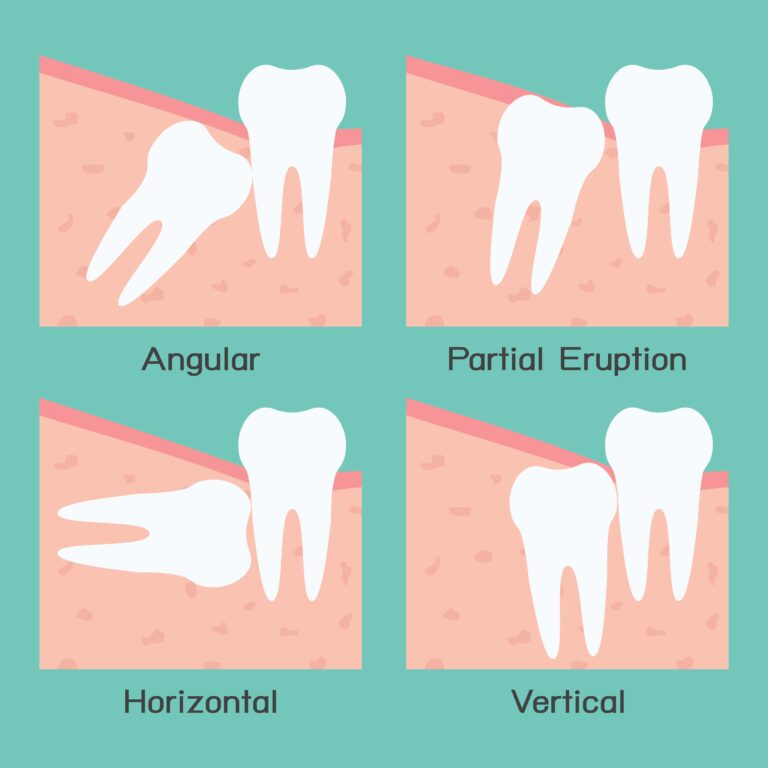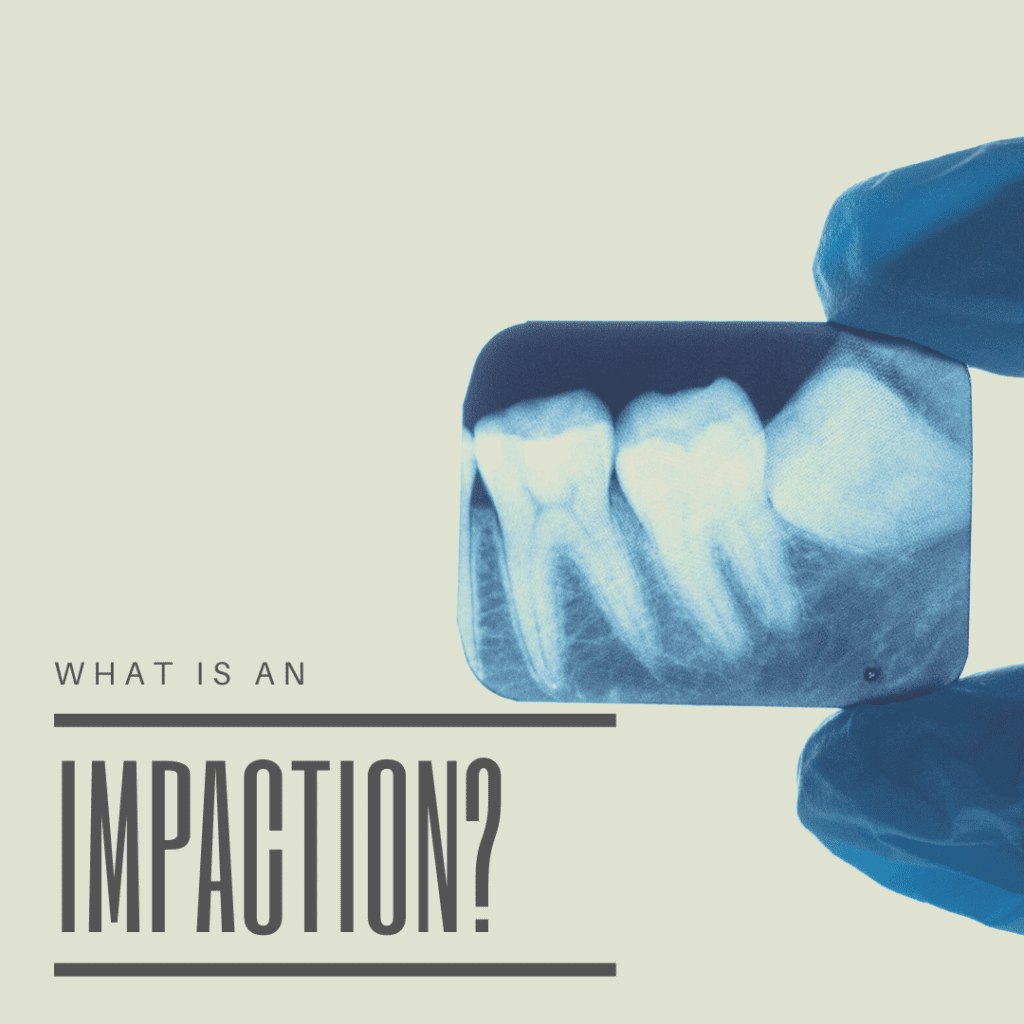Wisdom teeth are the third set of molars that are the final teeth to erupt. Wisdom teeth are so called because these teeth typically do not erupt until a person reaches their late teens or early twenties, when they have supposedly gained enough life experience to benefit from this third set of molars. Although wisdom teeth were once an essential part of our evolutionary past, they are no longer needed by the body. In fact, some people don’t even have wisdom teeth. For others, wisdom teeth can be a real pain. Especially when they are impacted.
A wisdom tooth impaction means the wisdom tooth has not come in properly and is stuck below the gum line or in the jaw bone. When a tooth is partially erupted, it is said to be partially impacted. In some cases, a tooth may be entirely trapped under the gums. This is known as a full or complete impaction. At first, they may look like regular teeth but wisdom teeth often grow at angles that cause them to crowd other teeth and make chewing difficult. When they are impacted, they may also cause additional complications, such as:
Wisdom Teeth Pain
One complication that can result from wisdom teeth is wisdom tooth pain. When a wisdom tooth becomes impacted, it may cause changes in your bite or in the way you chew food. These changes will likely give rise to some discomfort but wisdom tooth pain is another possibility. Wisdom teeth may damage nerves or blood vessels as they try to emerge from the gums, causing wisdom tooth pain that can be sharp and shooting in nature.
Infection
Impacted wisdom teeth are also one of the more common causes for wisdom tooth infection. The bacteria associated with gum disease have easy access to your wisdom teeth when they are impacted. When wisdom teeth become infected, they may cause pain and swelling in the jaw or neck area. They may also release harmful substances into your bloodstream that can make you feel sick.
Damage to Nearby Structures
Impacted wisdom teeth have the potential to damage nearby structures. The most common of these is your sinuses and nasal cavity, but impacted wisdom teeth can also create problems with your jaw or bite and potentially cause TMJ (temporomandibular joint) disorder.
Types of Wisdom Teeth Impactions
There are four different types of wisdom teeth impactions, including: mesial, distal, horizontal, and vertical.

Mesial
Mesial wisdom teeth impaction, also sometimes known as an angled impaction is when the wisdom tooth grows at an angle toward the front of the mouth. This type of wisdom tooth is usually partially erupted and is the most common type of wisdom teeth impactions. Mesial impactions will generally be monitored before deciding on a treatment option. In some cases, the tooth may fix itself, while in others it may need to be extracted.
Distal
Distal wisdom teeth impaction, another type of angular impaction, occurs when the wisdom tooth grows at an angle towards the back of the mouth. The affected tooth may be either partially or completely impacted. Distal impactions may be monitored or an extraction may need to be performed, depending on the extent of the angle, as well as whether the tooth is partially or fully impacted.
Horizontal
Horizontal impactions occur when the wisdom tooth is lying on its side parallel to the gum line. Because the tooth is on its side, it is unable to erupt and will be completely concealed under the gums. Horizontal impactions are also problematic because the wisdom tooth will start to push into the neighboring tooth root as it tries to erupt. As such, horizontal impactions generally require removal with a surgical extraction.
Vertical
Vertical impactions occur when the tooth is in the correct position facing upwards, however it is stuck partially or completely below the gums. Your dentist will usually monitor vertical impactions before making a treatment decision. Some vertical impactions will eventually erupt, while others will need to be extracted.




